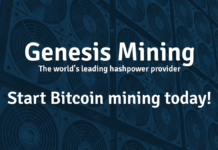After years of waiting, Raiden, one of Ethereum’s highly anticipated scaling solutions, is currently functioning on a test network. Announced via updates on GitHub yesterday, the futuristic Ethereum payment network is expected to allow for micropayments, lower fees, and near to instant settlements.
The promise of Ethereum has always been linked to its ability to gain the technological muscle to carry ever-increasing transaction throughputs. This is called “scaling” and it’s a rite of passage for every blockchain that is expected to carry on into the future. Although Ethereum developers have many ideas for how to scale the public chain, none of them have truly conquered the limiting technical factors of blockchain data structures and architectures yet. But hopes are high for the Raiden payment network: a transaction technology that could potentially allow for millions of transactions per second.
As more and more users enter the Ethereum ecosystem, the growing number of transactions can create backlogs of pending transactions, slowing down the entire network. This type of technological traffic jam has recently been evidenced by rushes to enter prominent token offerings. Raiden solves this problem by taking these transactions off the blockchain, allowing it to run faster (theoretically much faster). Removing transaction throughputs from reliance on miners and block times opens up the blockchain to accomplish more of its primary mission of being a ledger.
Raiden’s off-chain transactions, which take place on “state channels,” are built from Ethereum executable distributed code contracts (also called EDCCs or smart contracts). Raiden will facilitate the transactions by utilizing its own nodes, running alongside Ethereum nodes, to communicate with other Raiden nodes.
“State channels are an important technology that has the potential to greatly improve the scalability and privacy of many categories of blockchain applications; in conjunction with sharding and other privacy-preserving cryptographic technologies, they are an important ingredient in helping decentralized systems to achieve the properties that mainstream individual and institutional users expect and deserve.”
Per the Raiden website: “the basic idea is to switch from a model where all transactions hit the shared ledger on the blockchain (which is the bottleneck) to a model where users can privately exchange messages which sign the transfer of value.”
Developments to the Raiden network can be tracked via Github and will be followed by ETHNews.
Our Social Networks:
Facebook Instagram Pinterest Reddit Telegram Twitter Youtube






